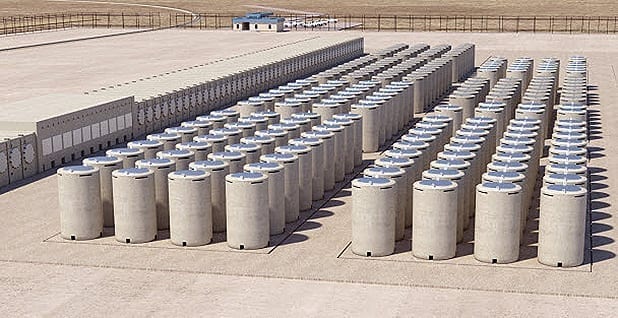
RadWaste Monitor Vol. 13 No. 19
Visit Archives | Return to Issue PDF
Visit Archives | Return to Issue PDF
RadWaste & Materials Monitor
Article 1 of 8
May 08, 2020
Texas Spent-Fuel Storage Site Gets Preliminary Thumbs-Up From Feds

Staff at the Nuclear Regulatory Commission has offered initial support for licensing a facility in West Texas for temporary storage of thousands of tons of spent fuel from nuclear power plants.
The recommendation is included in a draft version of the environmental…
Partner Content